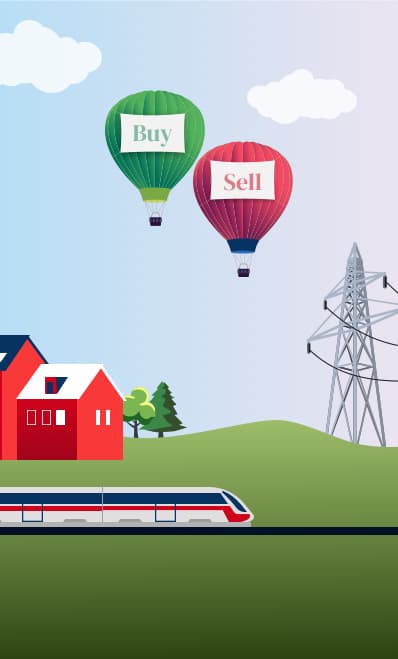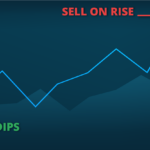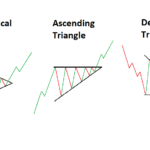A Brief History of Trade
As we go about our day to day lives, we tend to get wrapped up in our existence – our jobs, our family, our friends etc. We also tend to have a relatively narrow view of the things that matter to us or of those we care about.
Sure, we will be sad to hear about natural disasters in some remote country, but it will likely end at that. Most people will only get up in arms about things that are of immediate impact on their lives – a regime change, financial upheaval, medical issues, racial issues and so on.
That is not a criticism, just a statement of perceived facts.
But like it or not, there are forces out in the world that impact our lives whether we see, like or use them to our benefit; they are there nevertheless, helping us in different ways. One of those forces is trade, which controls many things in our lives, from the food on our plate to the cars we drive to the jobs we have as part of huge international corporations.
Trade has existed for millennia in many forms. Still, it has continually morphed to suit the needs of the time and the people. Its latest iteration is free trade, which has been impacted by the process of globalisation that the entire world has undergone in recent decades, and it comes with a whole host of benefits.
The Benefits of Trade Liberalisation

Before we get to the benefits of Liberalisation, we must first have a quick review of its definition: a status where trade regulations, laws, tariffs, taxes and multiple other barriers between nations are lowered to allow for the easier passage of goods.
Once those barriers are lifted, hypothetically – goods of all kinds begin to freely flow between countries, both as imports and as exports, from food products to ores & minerals to consumer goods and electronics.
The most quantitatively measurable impact of this newfound freedom can be found in the lowering of prices as far as the consumer goes.
When a marketA location or entity where people and entities can negotiate and trade assets of value. (any market) has a surplusA trade balance that is positive as a result of income (exports on the national level) being greater... of goods prices will always drop – it can be imported vegetables or clothes, cars or precious metals.
Naturally, when items cost less, consumers can either buy more or save more – both of which positively impact those consumers. Higher spending brings about a growth in income for suppliers and producers. It keeps moving up the virtual supply chain. In contrast, savings improve economic stability for the individual, their bank and the entire financial system.
The increased competition that comes from lower prices can also produce greater efficiency in various industries as they strive to keep up and improve; it can also cause entire nations to do an “about-face” when it comes to their means of production and export.
The UK, for example, was a very manufacturing-heavy economy as late as the early ’90s, coming out of the Thatcher Era. Still, as the world began shipping off manufacturing jobs to cheaper locals like India, China and others, the UK was forced into becoming far more reliant on its services sector.
That switch has served it well over the past couple of decades (regardless of its current implications and complications as a result of the whole Brexit ordeal).
But as you can imagine, every upside has a downside, which is why we must now turn to …
The Disadvantages of Free Trade

As the old saying goes: every rose has a thorn. And while trade is undoubtedly crucial to global prosperity, free trade can often be prickly and has more than a few hard liner detractors.
Those detractors would be quick to pointThe unit of price change for bonds (1%), futures (0.01%), shares ($1) and mortgage fees (1% of the p... out that for all the good it does, the overcrowding of any market with cheaper alternatives often drowns out quality local production.
If Australia produces oranges at an average cost of say 1.8 AUD per pound to its consumers and suddenly gets an influx of oranges from China that will cost consumers $1.5 per pound those consumers would be thrilled. Unfortunately, Australian orange growers would be squeezed out of the market. If you would like to know more about Chinese-Australian relationship, ChAFTA, we have a more in-depth article.
So imagine a nation that signs some sort of free trade deal with a country like China or India or Indonesia for example. The local market is likely to be flooded with cheaper alternatives at best and outright knockoffs at worst, all of which will only enrage local producers.
A free market also poses a greater riskThe level of deviation of past returns and/or losses on an asset from the mean. Usually, the higher ... to small nations who may find competition in such a market “too rich for their blood” – since the playing field is supposedly level. Picture a nation like Lebanon trying to compete with China over the import of car parts (just as an example). Whom do you think ends up winning that particular financial conflict?
The Pros and Cons of Globalisation

So now that you’ve gotten a glimpse of either side of the trade liberalisation argument, you may be asking yourself how it all could impact your trading habits.
The answer, to be honest, is that it will likely do so, but perhaps not in a direct way.
For example, A newly expanded trade deal between Australia & China may have a direct impact on the value of the AUD. Still, it is also likely to “trickle” downstream and impact other assets you can trade daily – the price of wheat may decline, the price of gold and silver could rise and so on.
The main point can be found in the question of how trade openness is measured, the extent to which different nations allow or pile difficulties on free trade – there is a balance that needs to be aimed for and achieved.
Even the biggest supporters of a free trade society freely admit that it creates a sort of distortion in local economics, a distortion that must somehow be fixed by regional regimes. And even those that are the staunchest opposers to it will likely give some leeway in admitting that in today’s world it is increasingly difficult for nations to continually prosper while getting in the way of trade, as not many nations are an island onto themselves.











